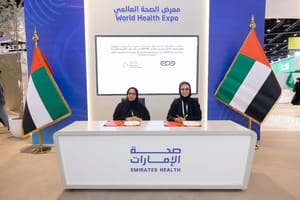The United Arab Emirates has launched a national initiative called 'Hayat,' designed to significantly enhance organ and tissue donation efforts in line with international standards.
The program aims to encourage more individuals to participate in organ donation, a noble act with the potential to save multiple lives and offer hope to those suffering from terminal illnesses.
Under Federal Decree Law No. 25 of 2023, the UAE permits the transplantation of organs and tissues from both living and deceased donors. Living donors can contribute kidneys and parts of their liver to relatives up to the fourth degree and may also donate to non-relatives. Deceased donors can provide vital organs such as the heart, liver, kidneys, lungs, pancreas, and parts of the intestine, along with various tissues.
The UAE's organ donation laws have evolved significantly over recent years. In 2016, the introduction of the organ transplant law set the foundation for deceased organ transplants and regulated living donations. This was further advanced in September 2023 with the enactment of Federal Decree Law No. 25, which for the first time allowed altruistic kidney donations in the country.
A critical stipulation in UAE law mandates that the transfer of any organ or part thereof requires confirmation of death from a panel of three specialized doctors. Moreover, the sale of human organs, tissues, or other body parts for transplantation is strictly prohibited, and any unlicensed advertising related to organ transplantation is banned.
In adherence to Islamic Sharia, organ donation is widely supported as it aligns with the principle of saving lives, a core value in Islam. Jurisprudence generally supports the permissibility of organ donation under these ethical considerations.
For living donors, stringent conditions apply: they must be legally competent, provide voluntary consent, and receive confirmation from an authorized medical committee that the donation will not harm them. Living donations are restricted to relatives within the fourth degree and couples married for at least two years. Once an organ has been removed, it cannot be recovered, though donors retain the right to withdraw consent at any time.
Deceased donors must have their wish to donate confirmed before death and documented either by a notary public or through the Emirates Identity card. The identity of both the donor and recipient is kept confidential by law.
Individuals interested in registering as organ donors can do so via the Hayat program on the Ministry of Health and Prevention (MoHAP) website. Those who register will receive an electronic donor card.
Following a donor’s death, their family will be contacted if they are registered. It is important for individuals to discuss their donation decision with family members, as the final decision will be made by them.
The UAE government cautions against illegal and unauthorized organ transplants. The following facilities are licensed for organ transplantation in the UAE:
- Cleveland Clinic Hospital
- Sheikh Khalifa Medical City (SKMC)
- Sheikh Shakhbout Medical City (SSMC)
- Dubai Hospital
- Mediclinic Hospital, Dubai
- Al Jalila Specialist Hospital for Children
- Human Organs and Tissues Transplantation Centre at Al Qassimi Hospital, Sharjah.
The Hayat program represents a significant step forward in promoting organ donation and transplantation in the UAE, aiming to save lives and improve the quality of care for patients in need.
News Source: Khaleej Times









